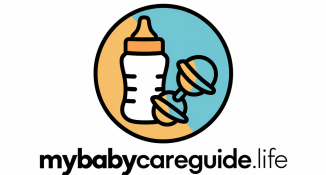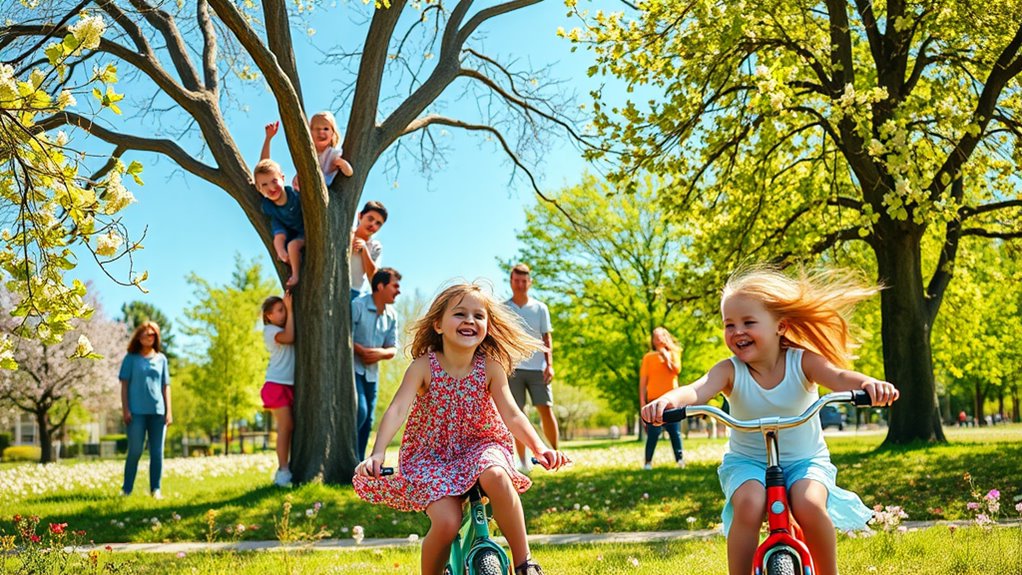Free-Range Parenting- Real-Life Success Stories
Free-range parenting encourages kids to explore, make decisions, and face challenges independently. For example, the Johnson family let their kids walk to school alone, which greatly boosted their responsibility and confidence. The Smith family celebrated their teen daughter’s success in rock climbing, helping her build self-trust. These success stories illustrate the benefits of allowing children freedom to navigate their environments and tackle challenges. As they learn to problem-solve, they grow more resilient and confident. This parenting approach offers valuable life skills that can last a lifetime, showing how stepping back can lead to remarkable transformations in your child’s life.
Embracing Independence in Children
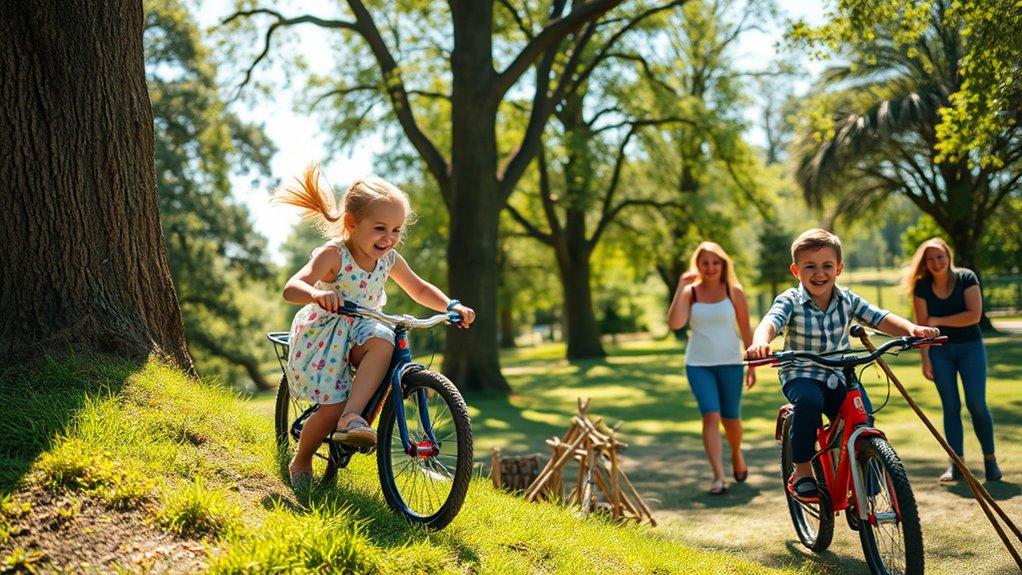
Embracing independence in children is like watching a seed sprout into a strong tree. You nurture it, providing the right environment, and soon enough, it grows confidently.
When you encourage your child to explore their surroundings or make decisions on their own, you’re helping them develop essential life skills. You might let them choose what to wear or decide what snacks to pack for school. These small choices build their confidence and teach responsibility.
As your child learns to tackle challenges independently, they gain the ability to think critically and creatively. They learn how to solve problems without relying on you for every answer.
Imagine your child planning a playdate or even deciding how to spend their allowance. These experiences not only foster their independence but also strengthen their decision-making abilities.
Overcoming Challenges Through Freedom
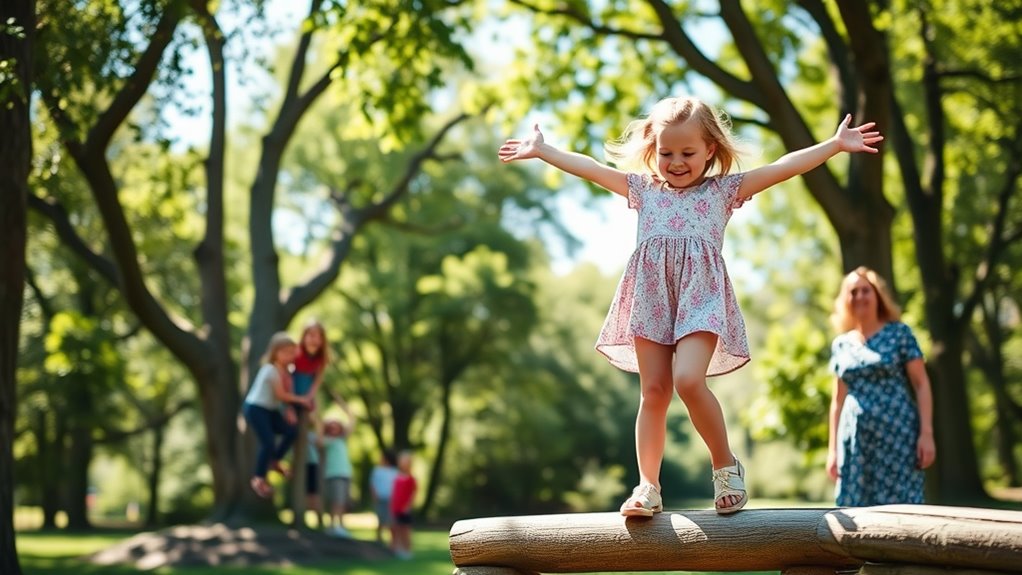
When kids are given the freedom to navigate their own challenges, they often surprise us with their resilience and creativity. Imagine your child tackling a problem, whether it’s figuring out how to fix a broken toy or making new friends at the park. Without your constant intervention, they learn to assess situations and come up with their own solutions. This independence allows them to experiment, make mistakes, and ultimately grow stronger.
You might worry at first, but watching your child face challenges can be incredibly rewarding. They’ll learn to trust their instincts and think critically, skills that are essential for their future. For instance, when a child decides to ride their bike to a friend’s house alone, they’re not just having fun—they’re also learning about responsibility, safety, and navigation.
Encouraging them to embrace challenges helps cultivate a sense of ownership over their experiences. You’ll notice that, instead of shying away from difficulties, they’re more likely to confront them head-on.
This journey of overcoming obstacles with freedom isn’t just about the task at hand; it’s about shaping confident, capable individuals ready to take on the world.
Building Resilience and Confidence
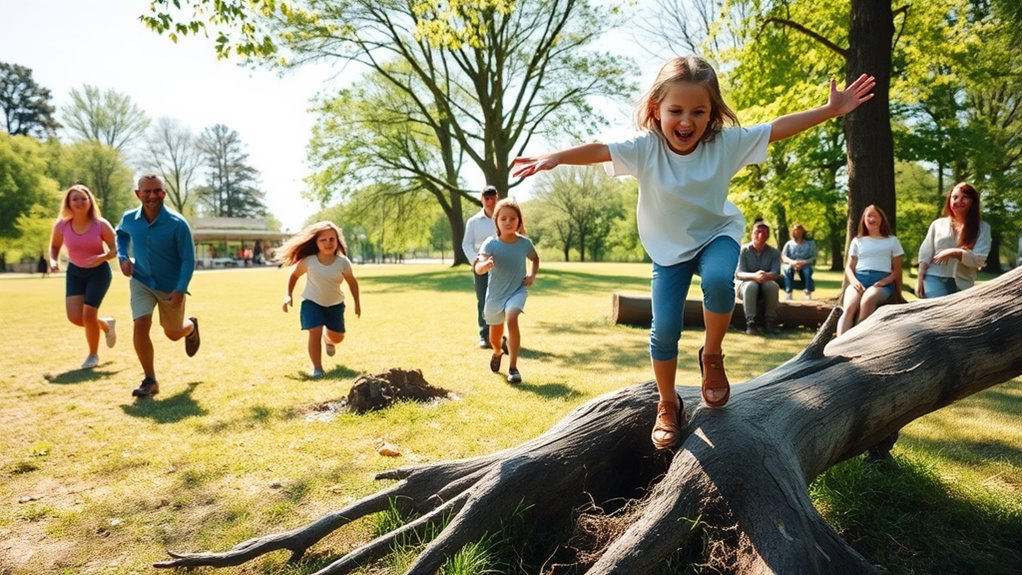
Building resilience and confidence in your child starts with giving them the space to tackle challenges independently. When you step back and allow them to try things on their own, you’re showing trust in their abilities. This trust encourages them to confront difficulties, whether it’s climbing a tree, solving a tricky puzzle, or figuring out how to negotiate with friends.
As they face these challenges, they learn valuable skills like problem-solving and perseverance. Each small success boosts their confidence, making them more willing to take on bigger challenges in the future. You can support this process by celebrating their efforts, not just the outcomes. A simple “I’m proud of you for trying” can go a long way in reinforcing their belief in themselves.
It’s also important to remember that failure is a part of growth. When things don’t go as planned, instead of stepping in to fix it, encourage them to reflect on what went wrong and brainstorm solutions. This approach instills a sense of ownership and responsibility in your child, helping them develop a resilient mindset.
Ultimately, you’re equipping them with the tools to navigate life’s ups and downs confidently.
Real-Life Examples of Success

Sharing stories of real-life success can inspire parents to embrace free-range parenting principles. Take the case of the Johnsons, who decided to let their kids walk to school alone when they turned ten. Initially nervous, they soon noticed their children developing a sense of responsibility and confidence as they navigated the neighborhood. The kids learned to manage their time, interact with peers, and even help younger kids cross the street safely.
Similarly, consider the Smith family, who encouraged their teens to explore new hobbies independently. Their daughter took up rock climbing, and through this experience, she not only built physical strength but also learned to trust herself. She faced challenges head-on, pushing past fears, and ultimately gained a sense of accomplishment that spilled over into her academics.
These examples show how allowing kids the freedom to explore their environments promotes growth and self-assurance. By stepping back and giving children room to thrive, parents can witness incredible transformations.
These stories illustrate that free-range parenting can lead to remarkable outcomes, instilling valuable life skills that last a lifetime. So why not consider these examples as motivation for your own parenting journey?
Lessons Learned From Free-Range Parenting
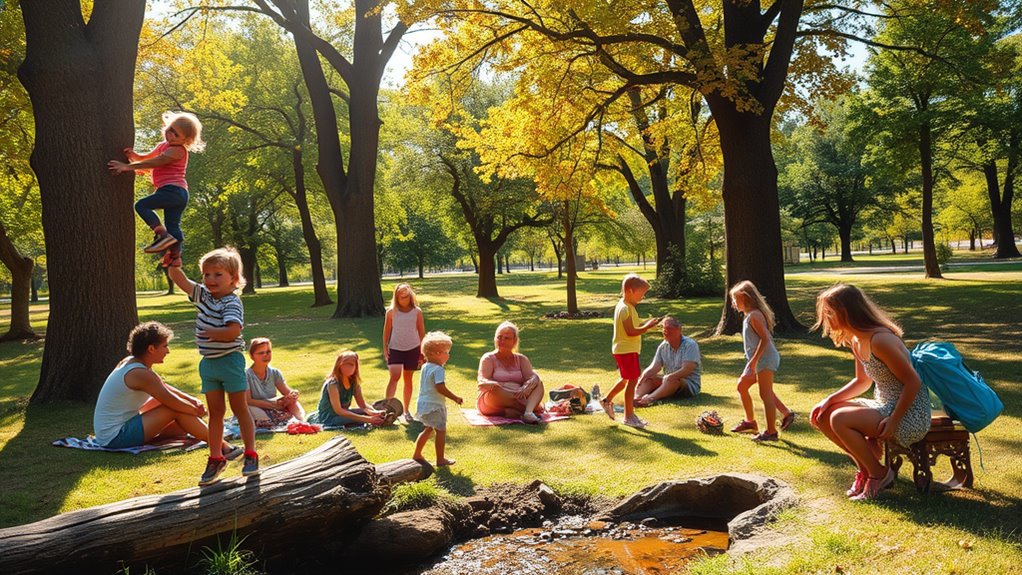
Free-range parenting offers valuable lessons that can reshape your approach to raising children. One key lesson is the importance of fostering independence. When you give your kids the freedom to explore their surroundings, they learn to make decisions and solve problems on their own. This not only builds their confidence but also teaches responsibility.
Another lesson is the significance of trust. By allowing your children to venture out and take risks, you’re showing that you believe in their abilities. This trust strengthens your relationship and encourages open communication. Your kids will feel more comfortable sharing their thoughts and experiences with you.
Additionally, embracing a less structured lifestyle can lead to more creativity. When children aren’t constantly scheduled, they’ve the chance to engage in imaginative play, which can enhance their cognitive skills.
Lastly, you’ll discover the value of community. Free-range parenting often encourages connections with neighbors and friends, creating a supportive network for both you and your kids.
